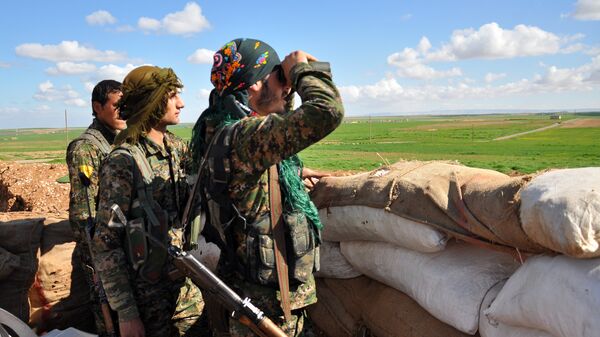"Sadly, the Kurds swallowed Washington's bait," he told the Russian daily. "The United States will never alienate Turkey and help Kurdish forces create their own state. The Kurds understandably want to unite their people and they have apparently hoped that the US will help them achieve this goal, but they essentially have become a means in Washington's hands."
Farkhat Patiev, who chairs the Council of the Federal National-Cultural Kurdish Autonomy, reaffirmed that the Syrian Kurds have received assistance from the US, but added that some of Washington's activities appear to indicate that they might not support the Kurds if they try to establish autonomy.
"The United States has been providing assistance to us, but they clearly have their own strategy. On the one hand, they have said that they support the Kurds in their fight against Daesh. On the other hand, they have turned a blind eye to Turkey's intervention in Jarablus," he told the newspaper. "Time will tell what goal the US is pursuing."
The People's Protection Units (YPG) and the Kurdish-led Syrian Democratic Forces (SDF) have been among the Pentagon's key allies in Syria. Kurdish militias have been instrumental in liberating strategically important locations, including the towns of Manbij and al-Shaddadi, as well as the Tishrin Dam. US military officials initially wanted the Kurds to push Daesh out of Raqqa, the group's de facto capital, and northern Syria since the militants used the porous border with Turkey to rearm and resupply.
As a result, Turkey launched a belated military offensive, formally known as Operation Euphrates Shield, aimed at removing Daesh and the Kurds from northern Syria. The United States have reluctantly provided support to its NATO ally.



